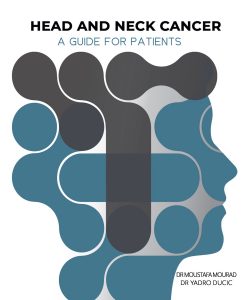The symptoms of a sinus infection (also known as sinusitis or rhinosinusitis), may initially be difficult to distinguish from those of a common cold. If you have a runny nose or some sinus pressure, it may not be the sort of thing that sets off any alarm bells for you. However, sometimes these symptoms will not fade in the way a cold would, and may even become worse. That’s when you’ll want to consult your doctor. It’s important to know the symptoms of sinusitis so that you’ll know what to expect should you be diagnosed with an infection.
How long should it take for a bad sinus infection to go away?
The length of a sinus infection can vary based on the severity and frequency of infections that you experience. Additionally, length may depend on any attempted treatments or interventions. Symptoms associated with a sinus infection include headaches, facial pressure, nasal discharge, fevers, fatigue, and nasal congestion. Sinus infections can be categorized based on duration of symptoms:
Acute Sinus Infection (0-6 weeks): An acute sinus infection refers to any infection or constellation of symptoms that lasts up to 6 weeks. If you have multiple infections with periods of resolution between each infection (i.e. you are symptom free), then you may experience “recurrent” acute sinus infections.
Subacute Sinus Infections (6-12 weeks): If you have an acute sinus infection that extends beyond the 6 week period, then your infection is characterized as subacute.
Chronic Sinus Infections (more than 12 weeks): If you experience symptoms of a sinus infection beyond 12 weeks, then you are likely experiencing a chronic sinus infection. Occasionally, you may have flare-ups of acute sinus infections, with periods between each episode in symptoms subside to some degree but do not completely disappear. In such cases, you likely have a chronic infection with acute exacerbations. Chronic sinus infections can be further classified on whether you have nasal polyps (Chronic Sinus Infections with Nasal Polyposis), or if you do not have nasal polyps (Chronic Sinus Infections without Nasal Polyposis)
Could a sinus infection last for several months?
Yes. A sinus infection and its associated symptoms may last for several months. This is termed as a chronic sinus infection. These may occur with or without nasal polyps. These are the most severe forms of sinus infections and typically require long term courses of antibiotics, steroids, and/or surgery.
What happens if I leave my sinus infection untreated?
Severe sinus infections which are left untreated may have extremely serious health consequences. Complications of sinus infections result from the spread of the infection to surrounding areas, resulting in chronic infection of the bones of the face and skull. Ascending infections may cause intracranial complications such as brain abscess and meningitis. Additionally, the infection may spread to the skin of the soft tissues of the face or eye, causing cellulitis, orbital abscess, and/or blindness which may be permanent. Fortunately, we live in the era of antibiotic treatments, and it is very uncommon for sinus infections to go on for prolonged periods of time. It can make a big difference to recognize sinus infections early on so that the appropriate therapy can be initiated.
Can surgery fix my sinusitis?
Surgery can have an important role in the management of sinus infections, regardless of the duration of symptoms. Surgery can clear the nasal and sinus passageways in order to prevent the buildup of mucus and fluids that harbor infection-causing bacteria. By surgically improving the sinus and nasal passageways, surgery also allows for topical medications to reach critical areas further preventing further infections. You may benefit from sinus surgery if you experience 3-4 sinus infections a year, or subacute and/or chronic infections that fail to respond to appropriate medical therapies, or if you have suffered a complication related to sinus infections.


